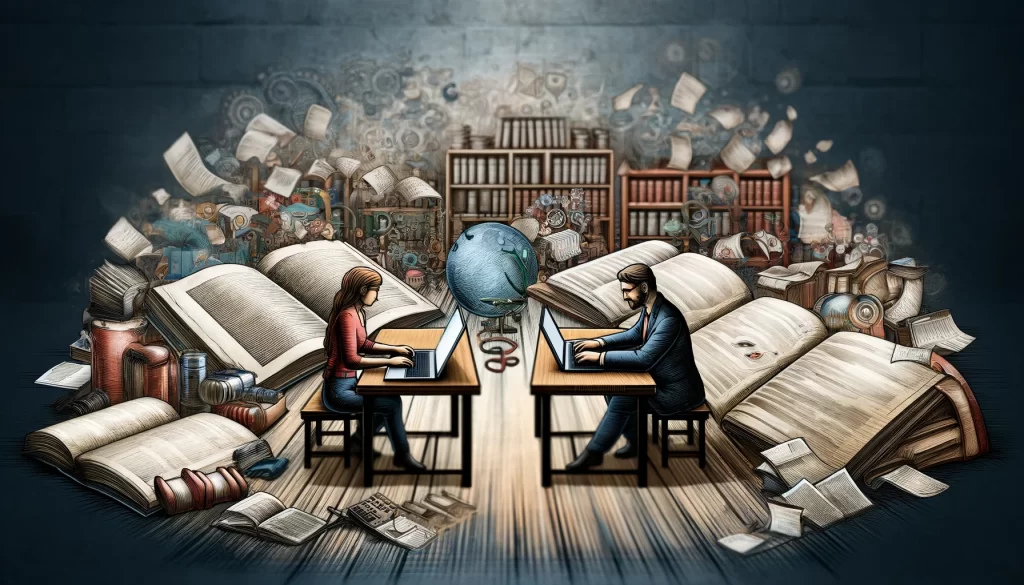Wouldn’t it be nice to embark on an epic journey that spans three continents, visits six different countries, and embraces six unique languages—all through the power of storytelling? This year’s International Booker Prize shortlist is like a literary passport, offering a collection of novels that transport readers across the globe. These stories weave through diverse cultures and styles, capturing the full spectrum of human experiences. From the intimate corners of personal struggle to the expansive realms of historical context, these books serve as gateways to new worlds, emotions, and insights, promising adventures that are as enriching as they are enlightening.
Eleanor Wachtel, the chair of the judges for the International Booker Prize 2024, shared an insight that captures the essence of these novels: “Novels carry us to places where we might never set foot and connect us with new sensations and memories.” She describes the shortlisted books as gateways to “vast geographies of the mind,” showcasing lives interwoven with history and politics in ways that are both intimate and radically original.
So, what is the International Booker Prize? It’s a prestigious award recognizing outstanding translated fiction from around the world, aiming to celebrate the beauty and diversity of global storytelling. Let’s dive into the shortlist for 2024, a lineup as diverse as it is intriguing:
“Not a River” by Selva Almada, translated from Spanish by Annie McDermott, is a gripping tale of masculinity, guilt, and desire. The story begins with two men and a teenager on a fishing trip that takes a dark turn, leading to a tale that’s been called “prophetic” and “a punch in the gut.”
“Kairos” by Jenny Erpenbeck, translated from German by Michael Hofmann, explores the disintegration of a love story against the backdrop of political turmoil. It’s a novel that echoes the divides between generations and the historical rift between East and West.
“Crooked Plow” by Itamar Viera Junior, translated from Portuguese by Johnny Lorenz, marks the debut of the youngest author on the shortlist. Through magical realism, it tells the story of Brazilian subsistence farmers and emphasizes the importance of remembering our histories and protecting our land.
“Mater 2-10” by Hwang Sok-yong, translated from Korean by Sora Kim-Russell and Youngjae Josephine Bae, offers a vivid portrayal of ordinary Korean lives across a century, from the Japanese colonial era to the modern day.
“What I’d Rather Not Think About” by Jente Posthuma, translated from Dutch by Sarah Timmer Harvey, delves into the aftermath of a brother’s suicide, inspired by the author’s personal loss, and praised for its “utter authenticity.”
“The Details” by la Genberg, translated from Swedish by Kira Josefsson, began in the throes of a fever during the early days of COVID-19. It’s a novel about relationships, memory, and the passage of time, celebrated for its “marvelous prose.”

The excitement around the International Booker Prize 2024 culminates on May 21, when the winner will be announced at a special ceremony at London’s Tate Modern. The award not only honors the authors but also shines a spotlight on the translators who bridge languages and cultures, bringing these stories to new audiences. The £50,000 prize will be shared between the author and the translator, underscoring the collaborative art of translation.
This event isn’t just for those who can attend in person; it will be livestreamed, allowing book lovers worldwide to join in the celebration. With Jack Edwards, known as the ‘internet’s resident librarian,’ presenting, it’s an event that bridges the literary world with the digital age.
Last year’s winners, Georgi Gospodinov and translator Angela Rodel, set a high bar with their novel “Time Shelter.” But this year’s shortlist promises its own unique journey through the stories that define us, the histories we carry, and the lands we may never physically visit but can experience through the magic of reading.
This article is based on the following article:

Background Information
By delving into these areas, readers will not only be better prepared to explore the novels shortlisted for the International Booker Prize but also gain insight into the complexities of global literature and the art of translation.
The International Booker Prize
- Purpose and Significance: The International Booker Prize is awarded annually to a book translated into English from any language, celebrating the work of the author and the translator equally. It aims to bring global literature to a wider audience, highlighting the importance of translation in breaking down language barriers and promoting cultural exchange.
- History and Evolution: Initially part of the Booker Prize, which started in 1969 and only included books written in English, the International Booker Prize became a separate award in 2005. This change acknowledged the critical role of translators and the value of international literature in the English-speaking world.
- Selection Process: Books are nominated by publishers, and a panel of judges, consisting of authors, critics, and literary figures, selects both the shortlist and the winner. The criteria include the quality of the novel and the translation, with an emphasis on the partnership between author and translator.
Translation and Its Importance
- The Role of Translators: Translators do more than convert text from one language to another; they bridge cultures, interpreting nuances, humor, and emotions, making the original text accessible and relatable to a new audience. Their work is crucial in preserving the soul of the story while navigating linguistic differences.
- Challenges: Translation is a complex art that involves choices about how to convey themes, dialogue, and cultural references in a way that feels natural in the target language. Translators must balance fidelity to the original text with the need to engage readers who may be unfamiliar with the source culture.
Themes in the Shortlisted Novels
- Cultural and Political Contexts: Many of the novels on the shortlist explore the intersections between personal lives and larger historical or political realities. Understanding the basic history of the countries involved (Argentina, Germany, Brazil, Korea, the Netherlands, and Sweden) and their cultural contexts can enhance your appreciation of these narratives.
- Literary Styles: The shortlisted works span a range of literary styles, including magical realism, historical fiction, and personal narrative. Familiarity with these styles can help readers better navigate the stories and appreciate their innovation and depth.
- Social and Environmental Issues: Some of the novels touch on critical global issues such as environmental conservation, political upheaval, and social justice. Awareness of these topics can provide a richer understanding of the novels’ themes and the significance of their settings.
Please subscribe to Insight Fortnight, our biweekly newsletter!
